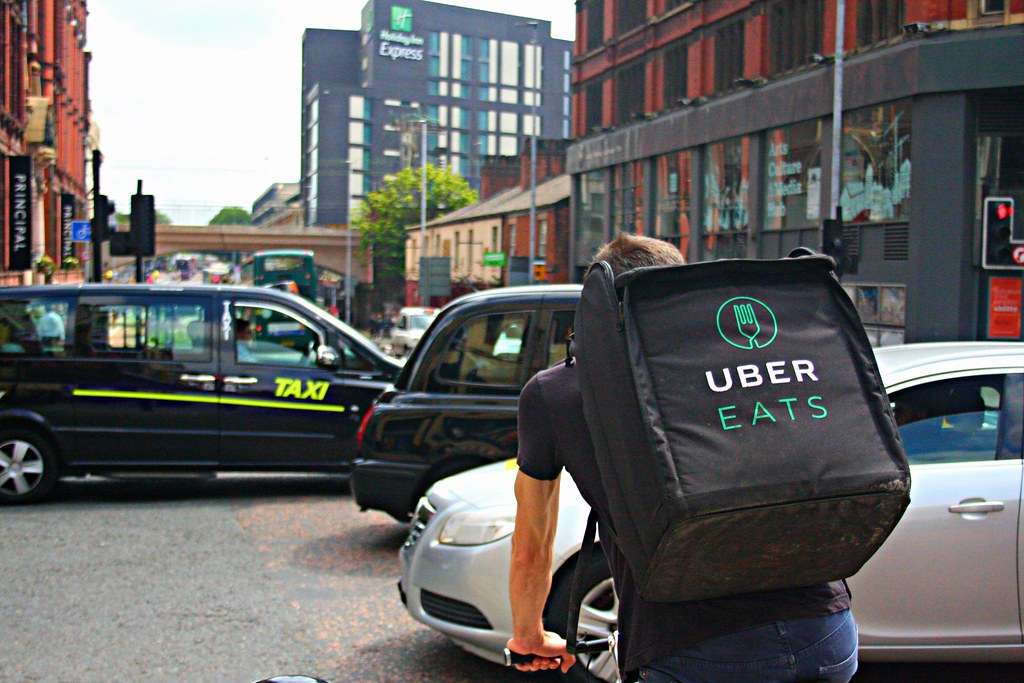On Tuesday, the California Senate passed a law governing relations of Uber, Lyft, Amazon, DoorDash and other so-called sharing economy players with people working for them, which can pretty much hit all companies of this kind. Previously, the law was approved in the California Legislature. It is expected that on Wednesday it will be signed by State Governor Gavin Newsom and will enter into force on January 1, 2020.
Under the new rules, it will become more difficult to prove that drivers, couriers and other people who work with companies of this kind are independent contractors and not employees.
In accordance with the new law, in order for workers to continue to be considered independent contractors, companies will need to prove a number of points. Only the following people will be considered as contractors: those who perform work that is not the main activity of the company; who have their own business or main job, and the company does not control their working hours. These conditions are not met for Uber and Lyft drivers, food delivery service couriers and other similar employees. And since they are considered employees of these companies, various social guarantees apply to them, such as insurance, maternity leave, minimum wage, and overtime pay.
At the same time, the new rules can pretty much hit firms in the shared economy, in which companies, with a relatively small staff of permanent employees hire independent contractors and freelancers. The most typical example of such companies is Uber, many services for delivering goods or food, for example, Instacart, Postmates, DoorDash, GrubHub. Many of these companies still have not reached any profit, and so the new rules can seriously affect them.
According to estimates by Barclays and Macquarie Capital, additional payments from Uber and Lyft in California can range from $ 2 thousand to $ 3.6 thousand per driver per year, which in total can cost Uber about $ 500 million annually. Costs for such companies on average can grow by 20-30%.
The impact may be all the more powerful because other countries have become interested in this issue. In December last year, a British court upheld the earlier decision that drivers are Uber employees and that they are subject to the minimum wage rule and other social guarantees. According to experts, other USA states may follow the example of California, which often becomes a pioneer in the adoption of various laws that other states would introduce later.
Such services themselves tried to find a compromise option in which employees would be provided with some social guarantees (for example, paying at least $ 21 per hour, but only when the drivers transport customers, provide sick leave, etc.), but at the same time they would continue to be considered contractors, not employees. Uber, Lyft and DoorDash continue to fight: they announced their readiness to allocate $ 90 million to hold a referendum in California on this issue, as companies hope that voters will vote for a compromise.
source: cnn.com
Under the new rules, it will become more difficult to prove that drivers, couriers and other people who work with companies of this kind are independent contractors and not employees.
In accordance with the new law, in order for workers to continue to be considered independent contractors, companies will need to prove a number of points. Only the following people will be considered as contractors: those who perform work that is not the main activity of the company; who have their own business or main job, and the company does not control their working hours. These conditions are not met for Uber and Lyft drivers, food delivery service couriers and other similar employees. And since they are considered employees of these companies, various social guarantees apply to them, such as insurance, maternity leave, minimum wage, and overtime pay.
At the same time, the new rules can pretty much hit firms in the shared economy, in which companies, with a relatively small staff of permanent employees hire independent contractors and freelancers. The most typical example of such companies is Uber, many services for delivering goods or food, for example, Instacart, Postmates, DoorDash, GrubHub. Many of these companies still have not reached any profit, and so the new rules can seriously affect them.
According to estimates by Barclays and Macquarie Capital, additional payments from Uber and Lyft in California can range from $ 2 thousand to $ 3.6 thousand per driver per year, which in total can cost Uber about $ 500 million annually. Costs for such companies on average can grow by 20-30%.
The impact may be all the more powerful because other countries have become interested in this issue. In December last year, a British court upheld the earlier decision that drivers are Uber employees and that they are subject to the minimum wage rule and other social guarantees. According to experts, other USA states may follow the example of California, which often becomes a pioneer in the adoption of various laws that other states would introduce later.
Such services themselves tried to find a compromise option in which employees would be provided with some social guarantees (for example, paying at least $ 21 per hour, but only when the drivers transport customers, provide sick leave, etc.), but at the same time they would continue to be considered contractors, not employees. Uber, Lyft and DoorDash continue to fight: they announced their readiness to allocate $ 90 million to hold a referendum in California on this issue, as companies hope that voters will vote for a compromise.
source: cnn.com





